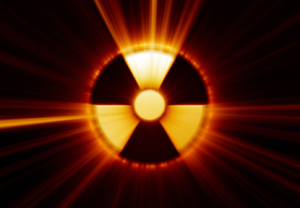Progreso de las marcas de Cleveland BioLabs en la droga de la enfermedad de la radiación
por Brendon Nafziger, DOTmed News Associate Editor | May 14, 2010

Radiation sickness drug
in late-stage development
in late-stage development
Cleveland BioLabs continues to work toward approval of a drug that could protect survivors of a nuclear bomb blast from radiation sickness, the company said this week.
The Buffalo, N.Y.-based company announced Monday it wrapped up dosing for the second leg of human safety testing on the drug known as CBLB502.
Because researchers can't test the drug on humans (the experiments would require irradiating people), the U.S. Food and Drug Administration allows what's known as the two-animal rule. In this, the researchers need to prove efficacy in two animal species but only safety in humans.
The company believes the drug could help victims of a nuclear attack or power plant accident survive by protecting them from the deadly effects of acute radiation syndrome, such as destruction of blood precursor cells and the lining of the intestines. Results of an initial study appeared in Science two years ago.
For this second-stage safety study, about 100 healthy human volunteers received the drug in one of four dosing regimens.
The biotech company expects to reach "meaningful conclusions" on the safety data at the end of the summer, after they've run tests on all the blood work collected from volunteers. So far, though, the results appear to be in line with an earlier Phase 1 study involving 50 human volunteers where the drug was well tolerated, the company said.
"At this stage we can say safety-wise we confirmed what had been demonstrated in the first study in terms of general details," Cleveland BioLabs CEO Michael Fonstein told DOTmed News.
Side effects appear to be relatively mild, flu-like symptoms lasting two to six hours after drug administration, and are consistent with the drug's mechanism of action, Fonstein said.
Biomedical Advanced Research and Development Authority, a division of the U.S. Department of Health and Human Services, financed the so-called Phase 1b safety study as part of its efforts to find a drug to protect people from nuclear weapon or dirty radiological bomb attacks.
The agency will also likely pay for the final, larger human safety study involving upward of 500 volunteers, Cleveland BioLabs said.
As for proving the drug works in two animals, the company is in discussions with the U.S. Food and Drug Administration. Efficacy studies have already been done on hundreds of monkeys and mice, Fonstein said, but he expects additional "fine-tuning" research to be required before approval.
"We see it all coming together in the first half of 2011," he said.
The company also bid on an important defense contrast. By the end of May, the Department of Defense is expected to announce the selection for a radiation-protection drug producer.
Cleveland BioLabs Inc. closed at $3.61 a share on Thursday.
Read about another radiation countermeasure recently covered by DOTmed News here
The Buffalo, N.Y.-based company announced Monday it wrapped up dosing for the second leg of human safety testing on the drug known as CBLB502.
Because researchers can't test the drug on humans (the experiments would require irradiating people), the U.S. Food and Drug Administration allows what's known as the two-animal rule. In this, the researchers need to prove efficacy in two animal species but only safety in humans.
The company believes the drug could help victims of a nuclear attack or power plant accident survive by protecting them from the deadly effects of acute radiation syndrome, such as destruction of blood precursor cells and the lining of the intestines. Results of an initial study appeared in Science two years ago.
For this second-stage safety study, about 100 healthy human volunteers received the drug in one of four dosing regimens.
The biotech company expects to reach "meaningful conclusions" on the safety data at the end of the summer, after they've run tests on all the blood work collected from volunteers. So far, though, the results appear to be in line with an earlier Phase 1 study involving 50 human volunteers where the drug was well tolerated, the company said.
"At this stage we can say safety-wise we confirmed what had been demonstrated in the first study in terms of general details," Cleveland BioLabs CEO Michael Fonstein told DOTmed News.
Side effects appear to be relatively mild, flu-like symptoms lasting two to six hours after drug administration, and are consistent with the drug's mechanism of action, Fonstein said.
Biomedical Advanced Research and Development Authority, a division of the U.S. Department of Health and Human Services, financed the so-called Phase 1b safety study as part of its efforts to find a drug to protect people from nuclear weapon or dirty radiological bomb attacks.
The agency will also likely pay for the final, larger human safety study involving upward of 500 volunteers, Cleveland BioLabs said.
As for proving the drug works in two animals, the company is in discussions with the U.S. Food and Drug Administration. Efficacy studies have already been done on hundreds of monkeys and mice, Fonstein said, but he expects additional "fine-tuning" research to be required before approval.
"We see it all coming together in the first half of 2011," he said.
The company also bid on an important defense contrast. By the end of May, the Department of Defense is expected to announce the selection for a radiation-protection drug producer.
Cleveland BioLabs Inc. closed at $3.61 a share on Thursday.
Read about another radiation countermeasure recently covered by DOTmed News here




